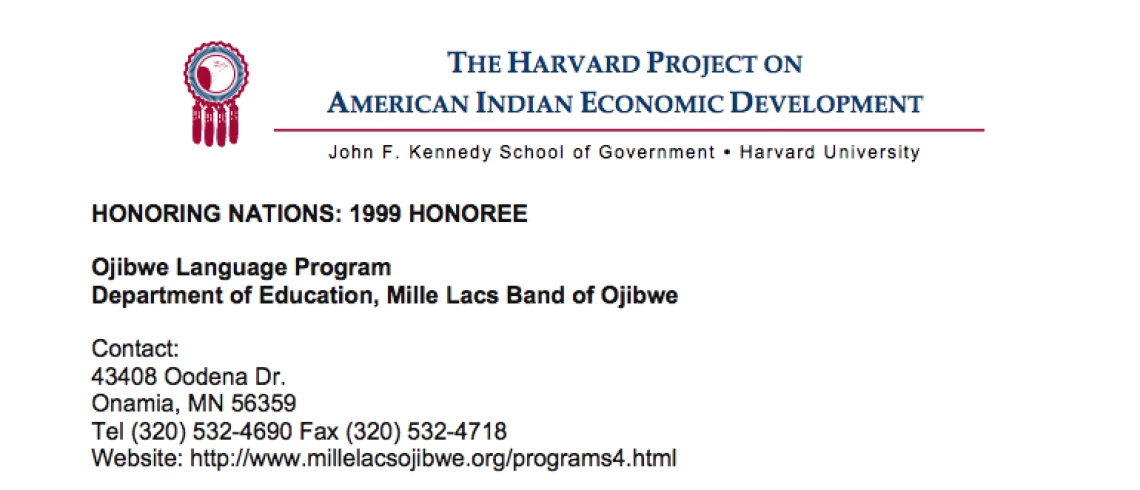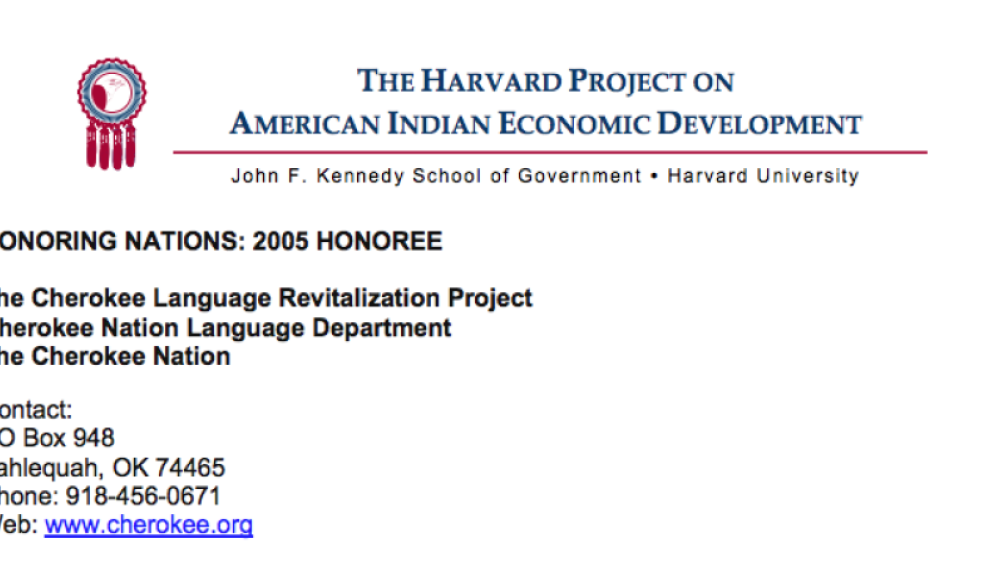Created in 1995, this tribally funded program serves 350 students (from toddlers to teenagers) and uses elder-youth interaction, song books, and comic books to teach the Ojibwe language. In addition, the Program broadcasts language classes to local public schools in an effort to teach the Ojibwe language, history, and culture to non-Indian children. Teaching the Band's children their traditional language has allowed Mille Lacs Band members to pass on tribal values more effectively. At the same time, it has served as an important tool in both preserving the Band's culture and strengthening bonds between Band members.
Additional Information
"Ojibwe Language Program". Honoring Nations: 1999 Honoree. The Harvard Project on American Indian Economic Development, John F. Kennedy School of Government, Harvard University. Cambridge, Massachusetts. 2000. Report.



